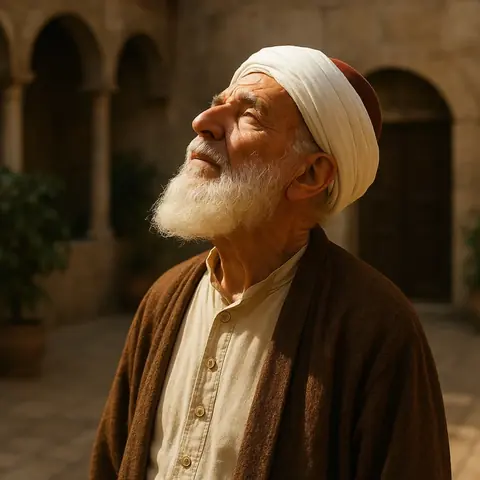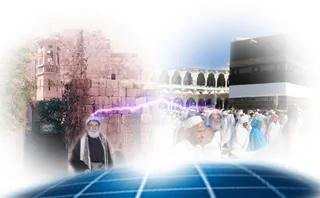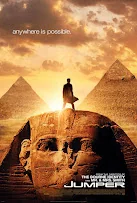In Islamic mystical traditions, particularly within Sufism, there exists a fascinating belief in the supernatural ability of certain pious individuals, known as awliya (saints), to teleport across vast distances instantly. This phenomenon, called "Ahl al-Khutwa" (literally: People of the Step), refers to those who can traverse miles in the blink of an eye or even be present in multiple places at once.
While this might sound like pure fantasy, for centuries, many devout Muslims believed, and some still do, that God bestows such miracles, known as karamat, upon His most righteous servants. These karamat are viewed as divine gifts, not to be confused with prophetic miracles, and are signs of spiritual elevation rather than a claim to prophethood.
What is "Ahl al-Khutwa" ?
The term "Ahl al-Khutwa" is used to describe those believed to possess a miraculous ability to "fold the earth beneath their feet," allowing them to cover immense distances with a single step or appear simultaneously in far-off places. This belief is especially prevalent in Sufi circles, where spiritual leaders are often ascribed such extraordinary feats.
Among the most commonly mentioned figures associated with this ability are four famous Sufi saints:
Ahmad al-Rifa'i from the Levant , Abdul Qadir al-Jilani from Iraq , Ahmad al-Badawi from Yemen , Ibrahim al-Desouki from Egypt
The belief in Ahl al-Khutwa is not universally accepted in Islamic theology. While Sunni Islam and philosophers like Avicenna (Ibn Sina) have acknowledged the possibility of karamat, other schools, such as the rationalist Mu'tazilites, outright reject them as superstition.
A Legendary Tale from Damascus: The Market of Sarouja
One popular folk story from Damascus, Syria, illustrates this belief vividly. It's said that a righteous man - a wali - lived in what is now called Sarouja district. One day, while he was in Mecca, his mother was cooking his favorite dish, kubbeh labanieh (meatballs in yogurt sauce), back home in Damascus. Through an almost telepathic connection, she called out to him, saying: “My son, I’ve made kubbeh for you today.”The saint replied, “Then, by God's will, I shall come to you to have my share and bring some back for my friends in Mecca.” Moments later, he appeared in Damascus, took his share, and returned to Mecca, with the dish still hot. The market where this happened was thereafter known as "Sarouja," derived from the Syrian colloquial phrase "sar w eja", meaning “he went and came.”
Ali al-Khawwas: The Egyptian Master of Spiritual Journeys
In Egypt, similar tales are recorded by the renowned Sufi scholar Abdulwahhab al-Sha’rani (1493–1565) in his book Lawaqih al-Anwar. He recounts stories of his teacher, Ali al-Khawwas, who was never seen praying the noon prayer (Dhuhr) in his local mosque. Yet, witnesses claimed to see him performing that very prayer in the White Mosque of Ramla, Palestine , hundreds of miles away.
When questioned, al-Khawwas explained that saints like him frequent spiritually significant sites , not for show, but to "heal" neglected sacred spaces through worship. Such journeys, he explained, are spiritual duties, not spectacles.
A Rationalist View: The Story of Sheikh Amin Sheikho
Not all Muslim scholars embraced these legends. Syrian scholar Muhammad Amin Sheikho (1890–1964), known for his critical approach to superstition, shared a story that mocked the concept of Ahl al-Khutwa.
In his book Revealing the Secrets of Sorcerers' Sciences, he recounts how a wealthy merchant, seeking a shortcut to the title of Hajji (pilgrim to Mecca) without spending money, approached a famous Sufi master, Sheikh Ahmad al-Haroun. The merchant begged the sheikh to give him a “blessed push” that would teleport him to Mecca and back.
At first, Sheikh al-Haroun dismissed the idea as nonsense. But when the merchant persisted, the sheikh agreed, instructing him to meet at dawn by a mosque's fountain. When the merchant arrived, full of anticipation, the sheikh gave him a firm shove, into the freezing waters of the mosque's fountain. The message was clear: such teleportation tales were foolishness, and belief in them was a sign of naivety.
Sheikho later commented, “ If such a miracle were part of Islam, the Prophet Muhammad himself would have been the first to use it, rather than enduring the hardships of migration on foot from Mecca to Medina.”
Faith, Folklore, or Fantasy?
The tales of Ahl al-Khutwa reflect a broader human fascination with transcending physical limits , whether through divine intervention, spiritual enlightenment, or genetic mutations in fiction. For believers, these stories are signs of God's favor. For skeptics like Amin Sheikho, they are cultural fabrications born of wishful thinking and charlatanry.
Either way, these legends offer a glimpse into how Islamic mysticism intersects with universal themes of power, devotion, and the eternal human dream of being everywhere at once.
Teleportation in Western Pop Culture:
The concept of instantaneous teleportation is not unique to Islamic folklore. Hollywood explored a similar idea in the 2008 film Jumper, based on a sci-fi novel by Steven Gould. The movie follows a young man with a genetic mutation that enables him to teleport anywhere instantly. As he discovers his abilities, he becomes entangled in an ancient war between "Jumpers" , people like him , and a secretive order sworn to destroy them.While the film doesn't reference Sufi traditions, the parallels are striking: a select group with supernatural mobility, ancient origins, and a clash with forces seeking to suppress their powers.









No comments:
Post a Comment